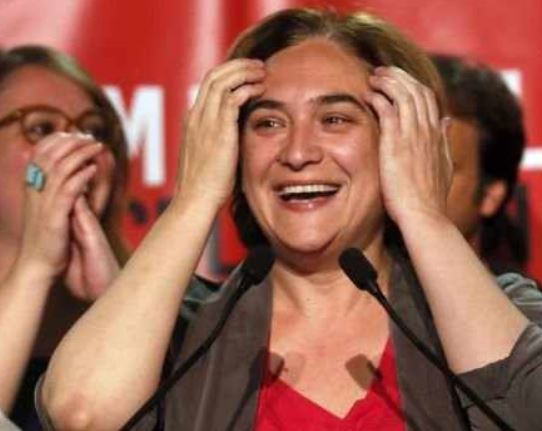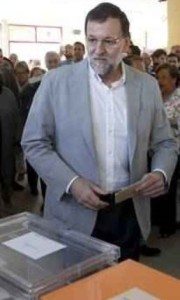
Progressives make gains in Spanish elections; conservatives lose majority
Russia Today/Agencies
Preliminary results from Spain’s regional elections on Sunday (May 24) showed big gains for upstart leftist and center-right parties and the conservatives losing their majority. While receiving the most total votes, the ruling Popular Party (PP) may now face coalition politics.
With more than 90 percent of the votes counted, the PP appears to have secured most of the votes in many of Spain’s 8,122 municipalities. However, it also lost the majority in most of them.

Notably in the Madrid city council, the PP managed to win 21 of the 57 seats, while 20 seats went to Ahora Madrid (Madrid Now), a coalition backed by a number of left-wing movements, such as Podemos (We Can). The Socialist Workers Party (PSOE) won 9 seats in the capital’s assembly.
[The leader of Podemos, Pablo Iglesias, said in a public appearance that “the end of the two-party system is being written in Spain. (…) We would have liked it if the erosion of the old parties were faster. We think that this spring of change is irreversible and will help us beat the PP in the November elections.”]

The results might be the worst for Prime Minister Mariano Rajoy’s party in more than 20 years, as many of the voters, suffering from severe spending cuts introduced by the current government, turned to the market-friendly Ciudadanos (Citizens) and anti-austerity Podemos after a series of corruption scandals in the country.
Meanwhile in Barcelona, another Podemos-backed movement, Barcelona en Comú, gained 11 seats in the local parliament, beating parties backing Catalonia’s independence from Spain.
[Barcelona en Comú’s newly-elected mayor, AdaColau (in photo at top), said that “it wasn’t easy for us. They defamed and slandered us, but we — with hope and illusion — showed that we could win. It has been the victory of David over Goliath.”]
The PP and its rival, the PSOE, have been trading power for decades, but the surge in support for the pro-business newcomers Ciudadanos and the leftist Podemos has shown that the country’s two-party system may now be facing a strong challenge.

[“We are here and we’re making history,” said Albert Rivera, the leader of Ciudadanos.]
Overhauling the two-party system has long been on the two upstart political parties’ agenda. With opinion polls suggesting that no party garnered enough votes to govern independently in most regions, the results of Sunday’s regional elections may signal the arrival of coalition politics, according to the Reuters news agency.
“We hope something will change, not radically, but at least something. And that it will also spell changes in the general elections so that we don’t have another absolute majority,” Amparo Aracil, a pensioner from Valencia, told Reuters.
Prime Minister Mariano Rajoy’s re-election bid later this year could now be undermined by Podemos and Ciudadanos. The parties have appealed to voters by calling for more transparency and accountability in politics. Spain has been suffering from an economic crisis that has left nearly a quarter of Spaniards out of work.
The elections, taking place in 13 of Spain’s 17 regions and more than 8,000 towns and cities, are seen as a preview of the political mood of the country, with national elections set for November.

